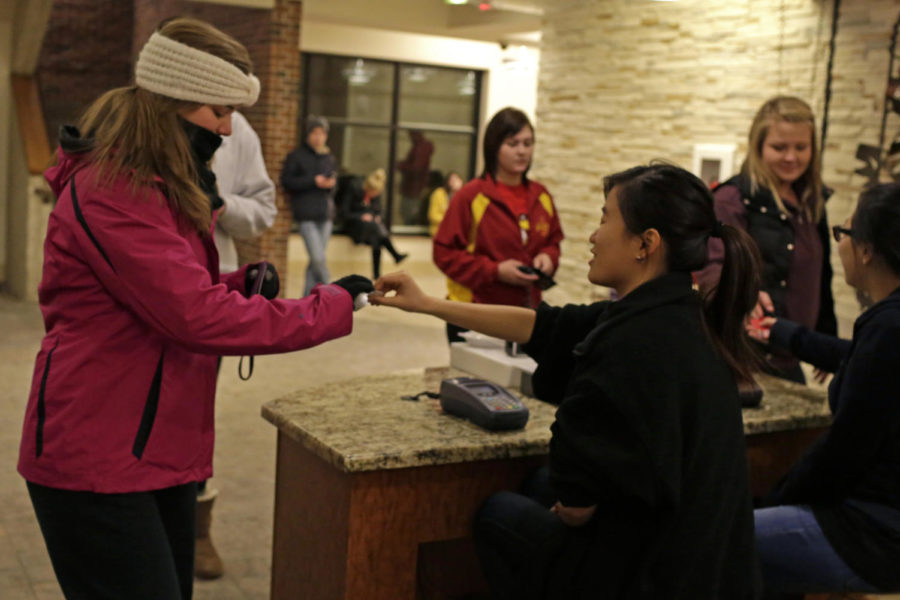End of semester leaves students with extra meals
The largest work study employer on campus is ISU Dining, followed by Parks Library and then Recreational Services.
December 13, 2013
A student who offered to give away her leftover meals to strangers was turned away by Seasons Marketplace on Wednesday, Dec. 11. Megan Burke said she wanted to give away the meals because she wanted to do something good after hearing about the body found in Wilson Hall.
“If small gestures can make someone’s day, then I might as well do my best,” Burke said.
The sign she was holding read: “Running low on meals? I will swipe my card for you. Just Ask! Happy holidays.”
With the end of the semester approaching, many students with meal plans are finding they have a surplus of meals left for the semester.
ISU Dining meal plans end when the semester is finished.
Students try to get rid of the excess meals before the end of the semester so it is not wasted money.
“You’re either going to waste your meals or let people use them,” said Kelsey Zieser, sophomore in supply chain management.
Within the past few years, ISU Dining has added five guest meals onto all the meal plans to allow students to purchase meals for their friends.
ISU Dining’s policy is that once a student runs out of their five guests passes they cannot purchase meals for their friends. The cashier at the dining centers and bundle locations is supposed to turn the student away.
“It’s a constant training issue in training our staff on the policy we have in place,” said Brittney Rutherford, marketing coordinator for ISU Dining.
In order to accurately predict the amount of meals students are eating, ISU Dining does not allow students to share more than those five meals so they can determine how many meals go toward each plan.
“We are able to set meal plans for students by assuming they are the only ones who eat the meals,” said Nancy Keller, director of ISU Dining. When students share meals, the assumption of the missed meal factor will shift therefore skewing the meal predictions.
Missed meal factor is the prediction of the amount of meals missed for each meal plan, which determines how much each meal will cost by using the theory that the more meals you purchase, the cheaper they will be.
Unlike the semester meal plans, students with meal blocks are allowed to share their meals. Due to this, ISU Dining is able to offer cheaper meals when students purchase a meal plan rather than meal blocks.
In order to allow students to share all of their remaining meals, the price of the meals would have to increase like it does on the block system. “The block rates are higher because they are sharable,” Keller said.
Students who have a surplus of meals at the end of the semester are able to change their meal plan for the spring semester. This allows students to better account for their schedules and cater to their meal habits, Keller said.
ISU Dining hopes to serve every student the best way they can by allowing them a variety of dining locations and meal plan choices.
“We want the students to eat all their meals,” Keller said.
She said that from a parental perspective, parents do not like paying for their student’s friend’s meals and would rather have their student be on the right meal plan for them.
ISU Dining has created more viable options for students within the past few years.
Keller said that in 2006, Clyde’s was the only location on campus where students were allowed to bundle meals. Since then, many more locations have opened all over campus.
More recently, ISU Dining has made Conversations Dining into a late night bundle location.
Keller said this is student’s first taste of real life, in real life we have to figure out how to balance our budget and feed our family.







